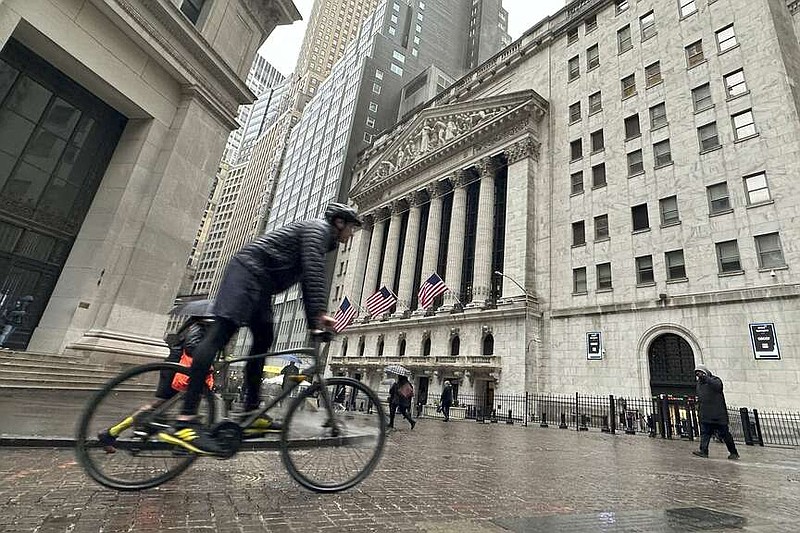NEW YORK -- Tumbling technology stocks dragged Wall Street down on Tuesday.
The S&P 500 dropped 1% for its second straight loss after closing last week at an all-time high. The Dow Jones Industrial Average fell 404 points, or 1%, and the Nasdaq composite led the market lower with a 1.7% slide.
Apple's share price drop of 2.8% was one of the heaviest weights on the market. It's been struggling on worries about sluggish iPhone sales in China, where tough competition and a faltering overall economy are challenging it.
Apple is one of several Big Tech stocks that's bent recently under the weight of much higher expectations after running much higher in price. Since the start of last year, a select group known as the "Magnificent Seven" has been responsible for the vast majority of the S&P 500's run to all-time highs.
Drops for several of them were among the heaviest weights on the S&P 500 Tuesday. Microsoft shares fell 3%, Amazon shares slid 1.9% and Tesla dropped 3.9%.
Piling into tech stocks has become one of the most popular moves on Wall Street among both mutual funds and hedge funds, according to strategists at Barclays Capital. That can raise the risk of sharp drops later when the momentum breaks, particularly with criticism rising that prices have gotten too expensive.
High-growth stocks have generally been rallying for several reasons, including a frenzy around artificial-intelligence technology, but if they "fail to deliver on aggressive expectations, growth investors will likely wind up disappointed," according to the asset allocation team at GMO, the investment firm co-founded by Jeremy Grantham.
MicroStrategy shares fell 21.2% after it said it will raise $600 million in debt, which it will use to buy more bitcoin and for "general corporate purposes."
Bitcoin briefly rose above $69,000 Tuesday, surpassing its record set in 2021, before pulling back below $63,000. It's been surging in part because of new exchange-traded funds that offer easier access for investors to the cryptocurrency. It roughly tripled over the last 12 months, but it's notorious for huge swings in both directions.
Target helped limit the market's losses after climbing 12%. It reported a bigger jump in profit for the end of 2023 than analysts expected as it held the line on some expenses.
Shares of New York Community Bancorp also rose 17.9% to trim its loss for the week so far to 9.3%. The bank is under pressure because of losses tied to investments it has related to commercial real estate. It's also under heavier regulatory scrutiny because of its purchase of much of Signature Bank, one of the banks that fell in last year's mini-crisis for the industry.
All told, the S&P 500 fell 52.30 points to 5,078.65; the Dow dropped 404.64 to 38,585.19; and the Nasdaq sank 267.92 to 15,939.59.
Hopes rose for coming cuts to interest rates after a report showed growth for U.S. construction, health care and other services industries slowed by more last month than economists expected.
Perhaps more importantly for the market, the report also said prices paid by services businesses rose at a slower pace in February than in January. A separate report, meanwhile, said U.S. factory orders weakened by more in January than expected.
Wall Street's hope has been that the economy will continue plugging along, but not at such a strong pace that it keeps upward pressure on inflation. That's because traders want the Federal Reserve to cut interest rates this year, something it's hinted it will do only if inflation cools decisively toward its 2% target.
Information for this article was contributed by Elaine Kurtenbach and Matt Ott of The Associated Press.

